Apr 27, 2023
Love Song to Small Farms
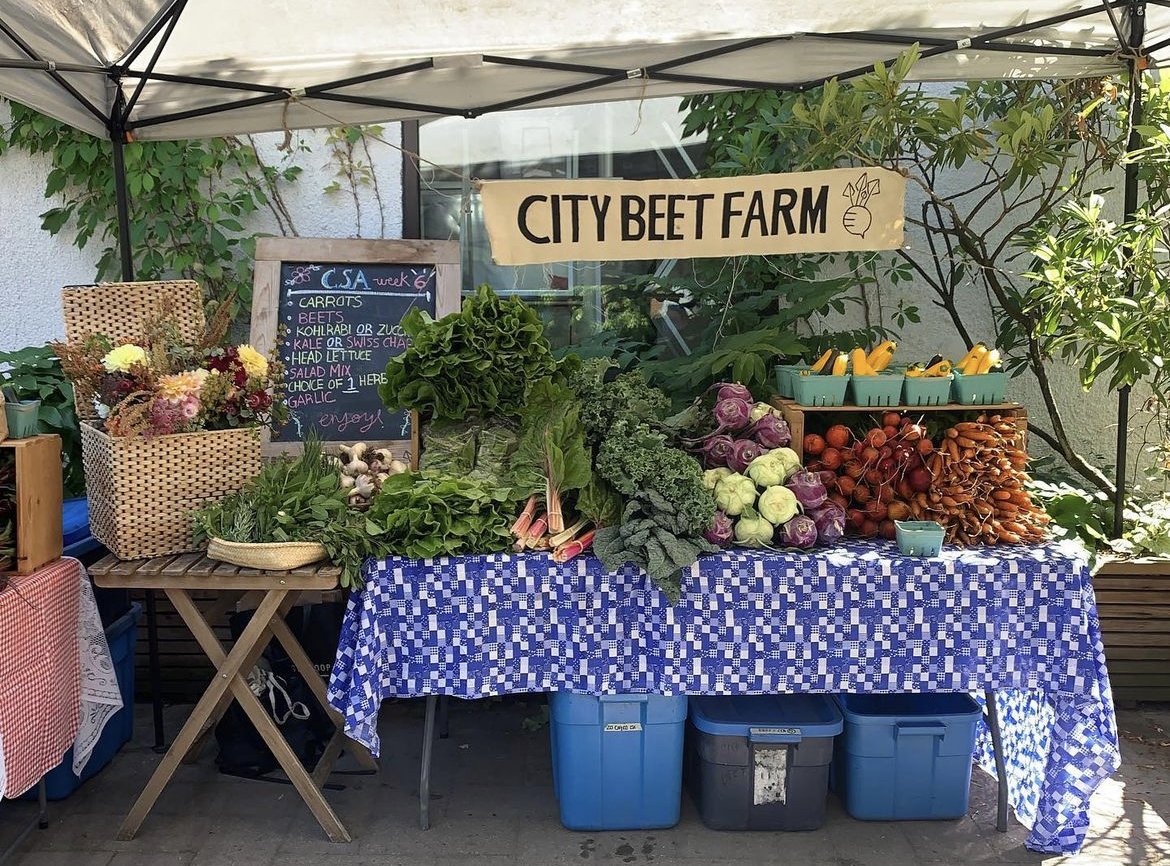
Credit: City Beet Farm.
Written by: Dorothy Braun
April 28, 2023
Controlled Environment Agriculture has the immense potential to transform our local food systems and provide much-needed access to fresh produce. Nevertheless, it is crucial to sing praise to and nurture the small farms that play pivotal roles in creating alternative foodways and cultivating community and culture through farming.
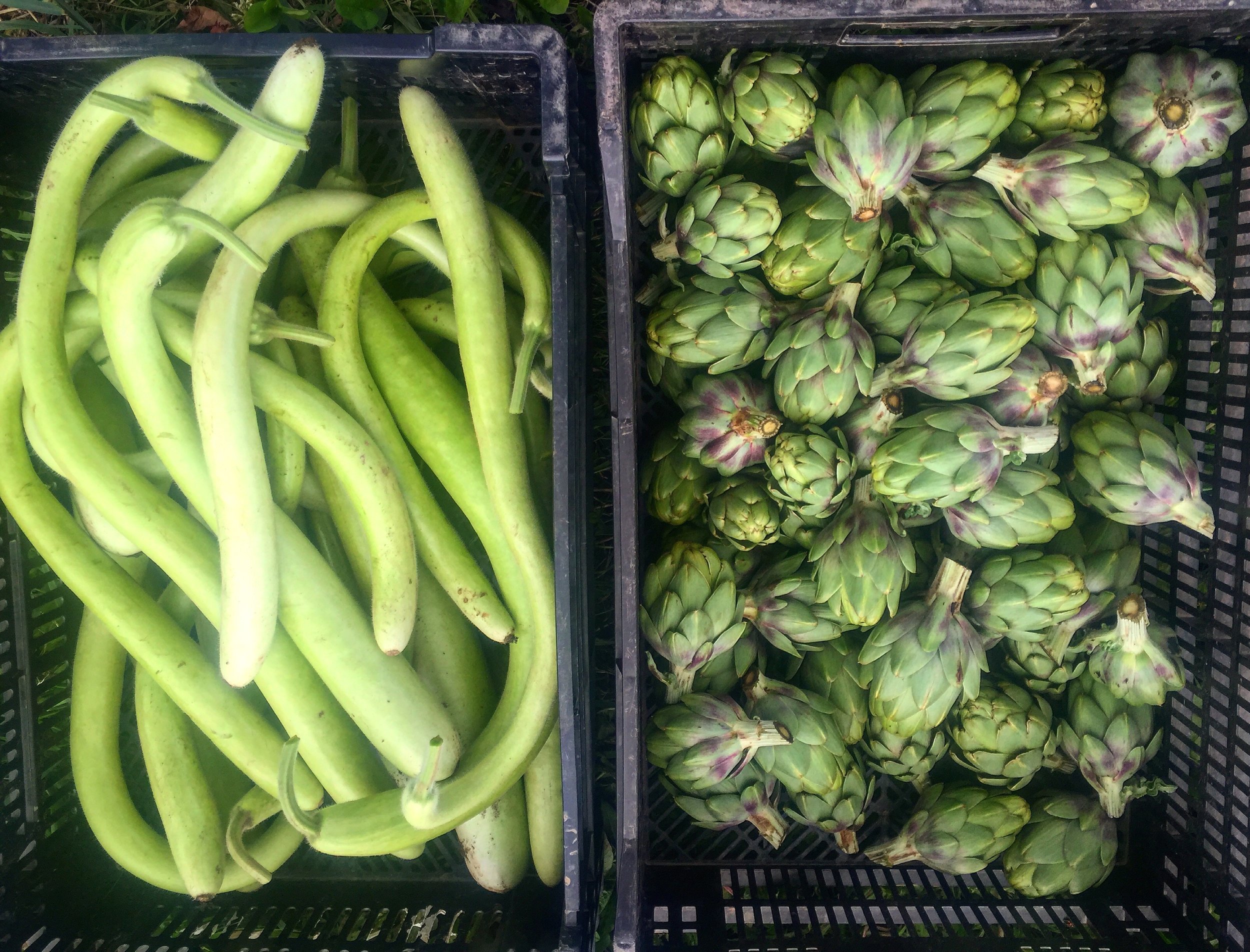
Credit: Star Route Farm.
Small farms can provide a locus for building community, reconnecting to food and land, and enhancing the diversity of local cultures. They are also highly valuable for economic and environmental reasons. Small farms support and sustain farm economies, protect and enhance natural resources, and provide a space for new innovative agricultural practices.
Small-scale farms grow 50% of our food calories on 30% of the agricultural land. They tend to be more productive than larger, conventional farms, and have a stronger commitment to protecting soil fertility and productivity in the long run. Since they often tend to provide a well-rounded variety of produce to their local communities, as opposed to targeting a specific crop market, they contribute to the agro-biodiversity of the local ecosystem and environment, supporting other native flora and fauna.
The cycle of creating local jobs, wealth, and health has meaningful implications for both surrounding urban and rural areas. Below are a few farms among many who are exemplifying the possibilities of a more just and truly sustainable food system, but there are countless that are doing equally valuable work.
Soul Fire Farm
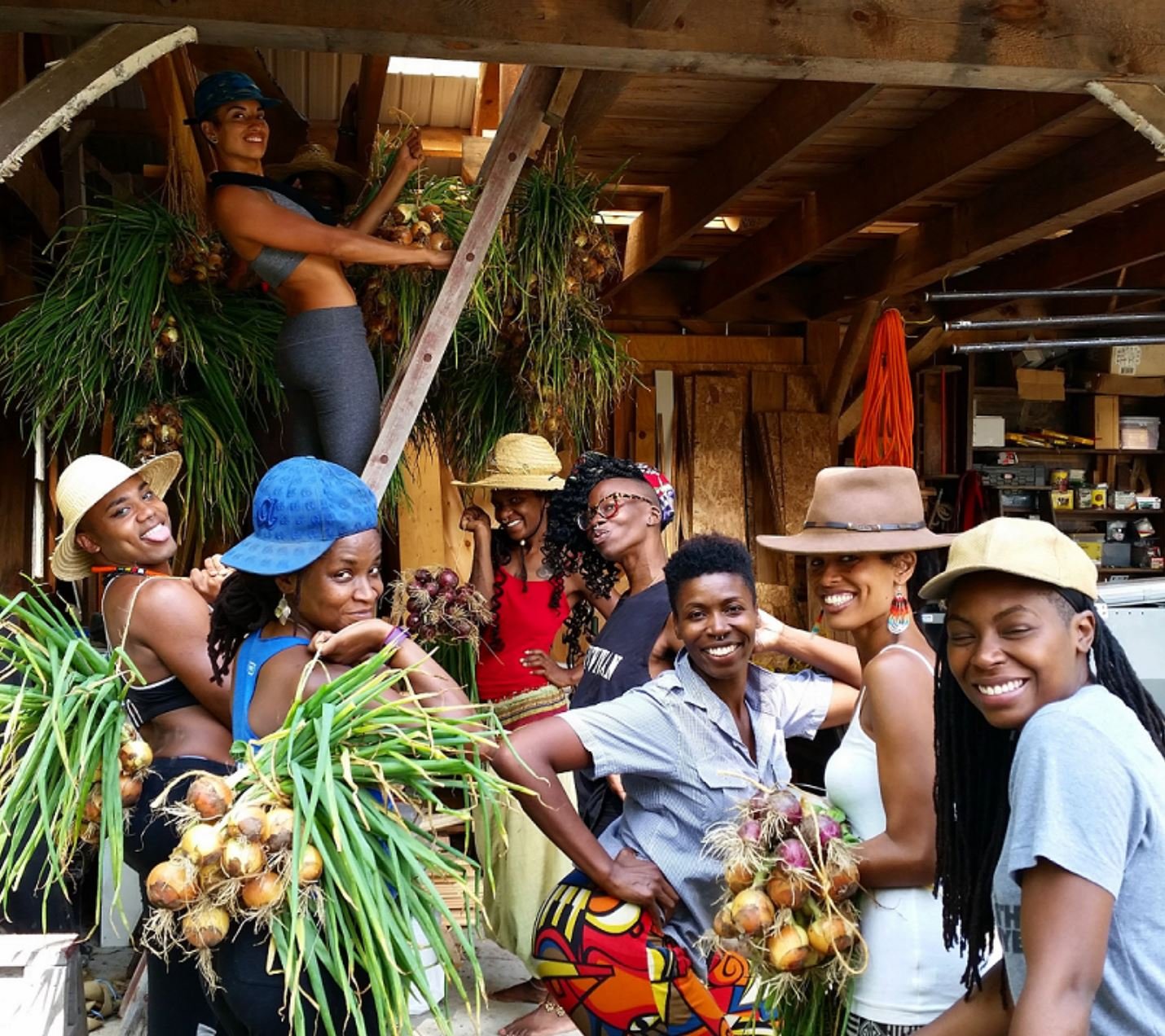
Credit: The Farmlink Project.
Soul Fire Farm is an Afro-Indigenous centered community farm located just outside Albany, NY. Founded in 2011 by Leah Penniman, Soul Fire Farm emerged from her experience of living in a food apartheid, encouraged by neighbors to create a farm that mobilized the community and created a vision for others to do the same. Soul Fire Farm is committed to end racism and injustice in our food system through programs such as the Black-Latinx Farmers Immersion, a sliding-scale farmshare CSA, and the Youth Food Justice leadership training. The Farm is part of a global network of farmers working to increase farmland stewardship by people of color, restore Afro-indigenous farming practices, and end food apartheid. It is a place to not only share food, but other skills such as sustainable agriculture, natural building, spiritual activism, health, and environmental justice.
Star Route Farm
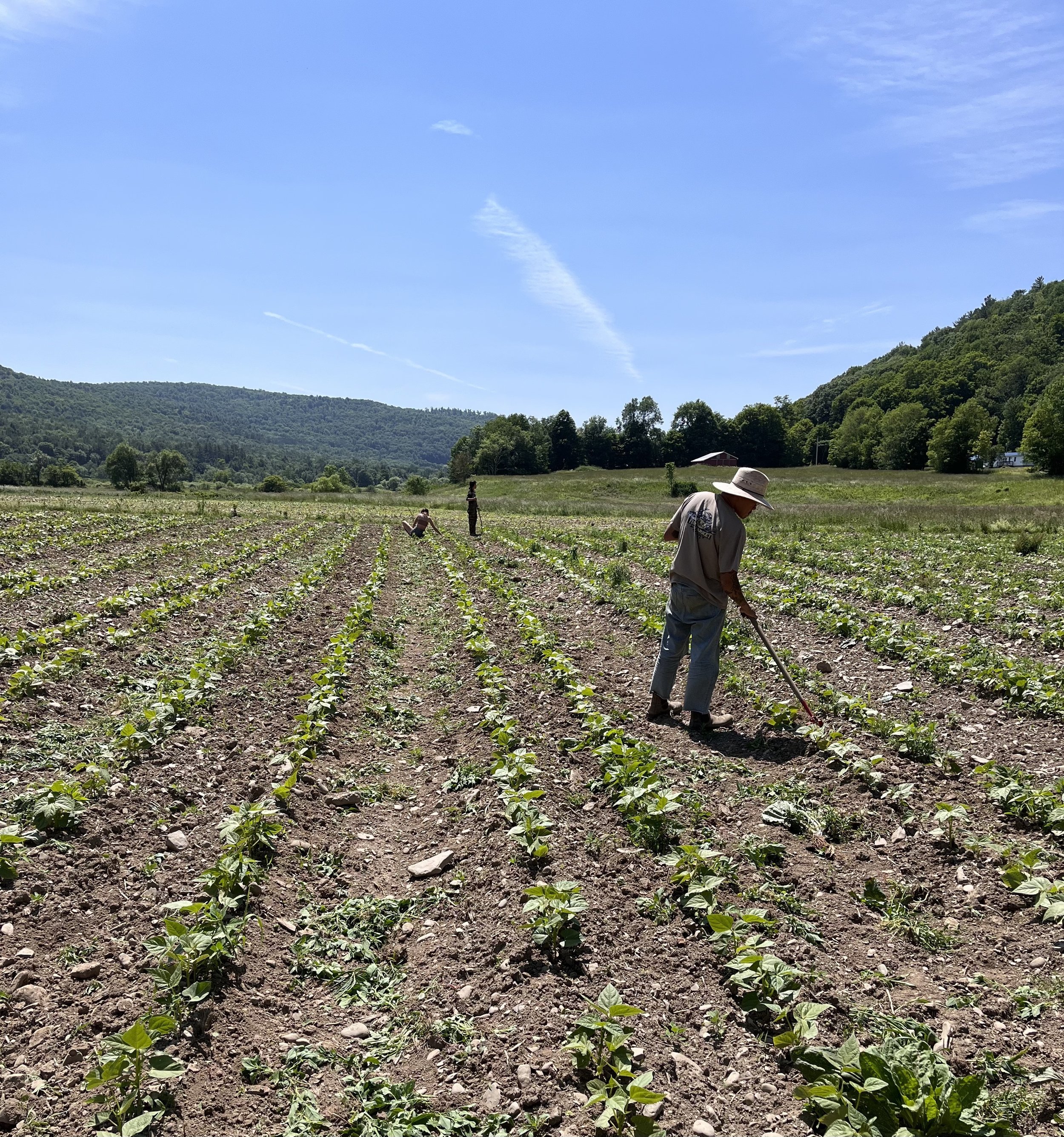
Credit: Star Route Farm.
Similarly situated in Upstate New York, Star Route Farm follows their mission statement of “People and Plants before Profit.” They seek to address the issues of inequity and inequality present in our food system by farming with integrity and responsibility, committed to the health of land and people. Through collaborative community partnerships, accessible and nutritious food security efforts, and culturally-driven farm stewardship, Star Route is a leader in local food sovereignty. Like many small farms, Star Route aims to reach their community in so many ways, through weekly farm stands in the city, fundraising events such as fresh meals cooked on the farm, and serving multiple mutual aid groups in NYC, such as East Brooklyn Mutual Aid, Comida Pal Pueblo, Bushwick Emergency Relief Fund, and Nuestra Mesa BK.
City Beet Farm
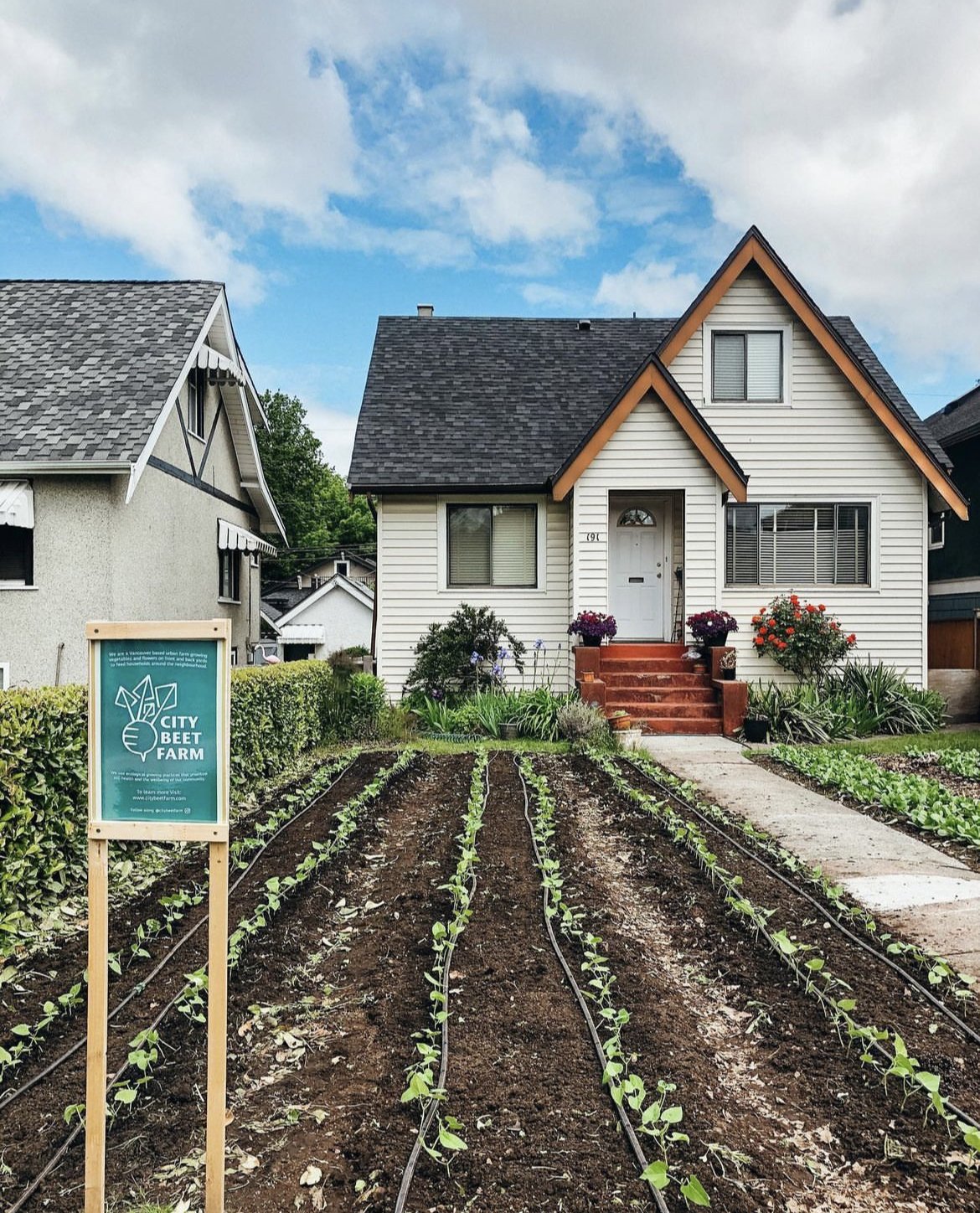
Credit: City Beet Farm.
A small-scale urban farm in the heart of Vancouver, City Beet Farm grows produce for their local community in the front and back lawns of their neighborhood homes. In efforts to reduce the amount of grass lawn area in North America, which a highly unsustainable and resource intensive crop, City Beet Farm takes applicants from homeowners in a certain radius around the city and transforms their lawns into farmland. This initiative makes the neighborhood's ecosystem more diverse and promotes their work in a visible and engaging way - what better promotion than on the streets of the community. The produce harvested is given back to those who volunteered their lawns for use, but since there is so much excess, it is also distributed back into the community through CSA shares and mutual aid partnerships.
To find and support a small farm in your community, a quick google search will show nearby options. Some might have volunteer opportunities or community gathering events. Some farms offer CSA (community-supported agriculture) a weekly share of in-season produce, or can be found at a farmers market. Some might be U-pick farms, where you can visit and experience harvesting produce yourself during peak seasons.
While the prevalence of small farms is immense, it is often difficult to accurately portray their significance because their impact is so localized and relevant to the communities they serve. This is why it is all the more important to get familiar with those in your area and understand how their mission is uniquely tailored to your community and environment. These farms can use your support in many different ways. If you have the opportunity to visit a farm near you, get to know your local farmers! Pick some fresh veggies! Sign up for a CSA share! Even if you don’t have time, money, or access to a small local farm, you can support the important and necessary factors of their success, such as protecting land and resources, empowering the younger generation to maintain farm stewardship, investing in research and innovation that benefit small-scale farmers, and centering them in relevant policy and planning processes. Spread the word, tell your neighbors, and continue to sing praise to the small, local initiatives that work to feed and nurture our communities.
